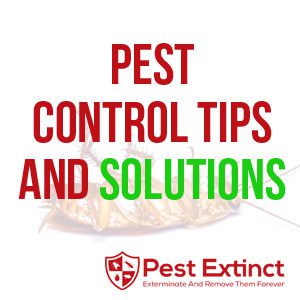
Understanding Winter Pests: What to Look Out For
As the cold of winter sets in, many homeowners focus on keeping their homes warm and cozy. However, it’s also a critical time to be vigilant about pests. Contrary to popular belief, the winter season doesn’t mean a complete halt to pest activity. In fact, many pests are actively seeking shelter in the warmer environments of our homes. Let’s dive into understanding these winter pests and what homeowners should be on the lookout for.
The Winter Pest Warning Signs
The onset of winter brings about a notable shift in the behavior of various pests. Understanding this seasonal change is crucial for homeowners to effectively safeguard their homes against unwanted intruders. Let’s delve deeper into why there is an uptick in pest activities during winter and the key signs to watch out for.
Why More Pests During Winter?
- Seeking Shelter: Many pests, including rodents, spiders, and certain insects, seek shelter from the cold. Your home provides the warmth and protection they need to survive the winter months.
- Scarcity of Food Sources: With the decline in outdoor temperatures, natural food sources become scarce. Pests are then drawn to homes, where they can often find ample food and water.
- Breeding Cycles: Some pests, like rodents, may breed more actively during the winter months in the safety of warm, undisturbed areas like attics or wall cavities.
- Reduced Outdoor Predator Activity: Fewer predators are active during the winter, which can lead to an increase in pest populations seeking refuge indoors.
The increase in pest activity during winter is largely driven by their survival instincts to seek shelter, warmth, and food. Being vigilant and recognizing the early signs of infestation is crucial for homeowners. Regular inspections, preventative measures, and prompt action at the first sign of pests can go a long way in keeping your home pest-free during the colder months. Remember, early detection and intervention are key to preventing a minor issue from becoming a full-blown infestation.

Rodents: Unwanted Winter Guests
One of the most common winter pests is rodents, including mice and rats. As the outdoor temperature drops, these furry intruders look for warm places to nest, and unfortunately, our homes are ideal for them.
- Signs of Rodent Infestation: Look for droppings, gnaw marks on furniture or wiring, and rustling sounds in the walls or attic. Mice can squeeze through spaces as small as a dime, so even small gaps can be an entry point.
- Health and Safety Risks: Rodents are not just a nuisance; they can pose serious health risks. They can carry diseases such as hantavirus and salmonella, and their habit of chewing wires can create fire hazards.
Spiders: Lurking in Corners
While spiders are commonly found in homes throughout the year, some species may become more noticeable indoors during winter.
- Common Winter Spiders: House spiders and cellar spiders are typical in homes during winter. While they are generally harmless and can even help control other insects, their presence can be unsettling.
- Prevention Tips: Regular dusting and vacuuming can help reduce spider populations. Sealing cracks and openings and managing other insect populations in your home can also decrease the likelihood of spider infestations.
Cockroaches: Seeking Warmth and Food
Cockroaches are another pest that often seeks refuge in homes during the colder months. They are attracted to warm, humid environments and often find ample food sources in our kitchens and garbage.
- Identifying Cockroach Presence: Cockroaches are nocturnal, so you may not see them during the day. Signs of an infestation include droppings, a musty odor, and egg casings.
- Dangers of Cockroaches: They can contaminate food and surfaces and are known to trigger asthma and allergies, especially in children.


How to Combat Winter Pests
Effectively combating winter pests involves a combination of preventative measures, vigilance, and sometimes professional intervention. As homeowners, understanding and implementing these strategies can significantly reduce the likelihood of pest infestations during the colder months.
Seal Entry Points
A critical step in pest prevention is to seal any potential entry points. This includes fixing broken screens, sealing gaps around doors and windows, and repairing any cracks in the foundation or exterior walls.
Maintain a Clean Home
Pests are often attracted to food and water sources. Regularly vacuuming, wiping down counters, managing garbage, and fixing leaky pipes can go a long way in deterring pests.
Store Food Properly
Store food in airtight containers and avoid leaving pet food out overnight. This limits access to food sources for pests like rodents and cockroaches.
Monitor Humidity Levels
Since many pests thrive in humid environments, managing the humidity levels in your home can help deter them. Using dehumidifiers in damp areas like basements can be effective.
Regular Inspections
Regularly inspect your home for signs of pests. This includes checking under sinks, in cupboards, and in the attic and basement. Early detection is key to preventing a full-blown infestation.
Professional Pest Control
Sometimes, despite best efforts, pests find their way into our homes. In such cases, it might be time to call in professional pest control services. They can offer targeted treatments and ongoing management strategies tailored to your specific situation.
Additional Strategies for Pest Control
Continuing with our discussion on combating winter pests, let’s delve into additional strategies that homeowners can employ to fortify their homes against these unwelcome guests during the colder months.
Enhancing Your Home’s Defenses
- Door Sweeps and Screens: Install door sweeps on exterior doors and repair any holes in window screens. These simple additions can be a first line of defense against crawling insects and rodents.
- Chimney Guards and Vent Covers: Ensure that chimneys are capped or have guards and that vents are covered with fine mesh to prevent pests from entering.
- Proper Insulation: Properly insulate your home, including areas like attics, basements, and crawl spaces. This not only keeps your home warm but also deters pests who might seek refuge in less insulated spaces.


Utilizing Natural and Non-Toxic Solutions
- Essential Oils: Certain essential oils, like peppermint, eucalyptus, and citronella, can act as natural repellents for various pests.
- Herbal Deterrents: Herbs like lavender, rosemary, and mint can deter a range of pests and can be grown in small pots indoors.
- Non-Toxic Traps and Baits: If you prefer to avoid chemical solutions, there are non-toxic traps and bait options available that can effectively control pest populations.
Adopting Smart Landscaping Techniques
Smart landscaping is a crucial yet often overlooked aspect of winter pest control. The way you manage your outdoor space can significantly influence the likelihood of pests seeking shelter in your home during the colder months. Here are some concise and effective landscaping strategies to help keep winter pests at bay:
- Gravel Barriers: Create gravel barriers around the perimeter of your home. Many pests dislike crossing over gravel as it is difficult and uncomfortable for them.
- Smart Planting: Some plants are known to repel certain pests. Incorporating these into your garden can serve as a natural deterrent.
- Regular Lawn Maintenance: Keep your lawn mowed and bushes trimmed. Tall grass and overgrown vegetation can provide hiding spots and breeding grounds for pests.
Awareness of Seasonal Changes
- Understand Pest Seasonality: Different pests are active at different times of the year. Understanding which pests are more likely to invade during winter can help in tailoring your prevention strategies.
- Monitor Weather Patterns: Sudden changes in weather, like an unseasonal warm spell, can affect pest behavior. Stay alert to such changes and adjust your pest control measures accordingly.
Seeking Professional Assessments
Professional assessments play a crucial role in the overall strategy of winter pest control. While DIY methods and preventive measures are effective to a certain extent, the expertise and experience of professionals offer an added layer of defense.
Professional pest control services offer invaluable expertise and solutions, particularly when dealing with the unique challenges of winter pest infestations. Their role goes beyond just addressing current pest problems; they provide a comprehensive approach to preventing future infestations. Here’s a closer look at why professional pest assessments are vital, especially during the winter months.
- Routine Professional Inspections: Even if you don’t suspect an infestation, having a professional pest control expert inspect your home can provide peace of mind. They can identify potential vulnerabilities and suggest preventive measures.
- Customized Solutions: Professional pest control services can offer solutions specifically tailored to your home’s layout, location, and particular pest challenges.
Targeted and Effective Treatments
- Specialized Knowledge: Professional pest controllers have in-depth knowledge of various pests, their habits, and the most effective ways to eliminate them. This expertise ensures targeted and effective treatment that is specific to your pest problem.
- Advanced Methods and Equipment: Professionals use state-of-the-art equipment and advanced pest control methods that are not typically available to the general public. These tools allow for more precise and effective treatment.



Long-Term Pest Management Strategies
- Integrated Pest Management (IPM): Many professional services use IPM, a holistic approach that focuses on long-term prevention of pests through a combination of techniques such as biological control, habitat manipulation, and use of resistant varieties.
- Customized Prevention Plans: Based on an assessment of your property, pest control professionals can develop a customized plan that addresses the specific needs and vulnerabilities of your home, ensuring long-term protection.
Safety and Health Compliance
- Safe Application of Treatments: Professionals are trained in the safe application of pest control substances, minimizing the risk to your family and pets.
- Compliance with Regulations: They are also knowledgeable about local and federal regulations regarding pest control substances, ensuring that all treatments are compliant with safety standards.
Convenience and Peace of Mind
- Time-Saving: Hiring a professional service saves you the time and effort of dealing with pest infestations on your own.
- Peace of Mind: Knowing that your pest problem is being handled by experts provides peace of mind and assurance that the infestation will be effectively managed.
Understanding the types of pests that are more active during the winter and what to look out for is the first step in protecting your home. By taking preventative measures and remaining vigilant, you can significantly reduce the chances of a pest infestation during the colder months. Remember, effective pest management is a combination of proactive prevention, regular home maintenance, and, when necessary, professional intervention. Stay warm and pest-free this winter!
If you’re concerned about potential pest problems this winter or simply want to be proactive in protecting your home, it’s a great time to consider professional pest control services. Whether it’s dealing with existing infestations or preventing future ones, the right expertise can make all the difference. Don’t let pests take away your peace of mind this winter – Pest Extinct is prepared to help you find local pest control solutions with reliable and competitive quotes today.

Leave a Reply